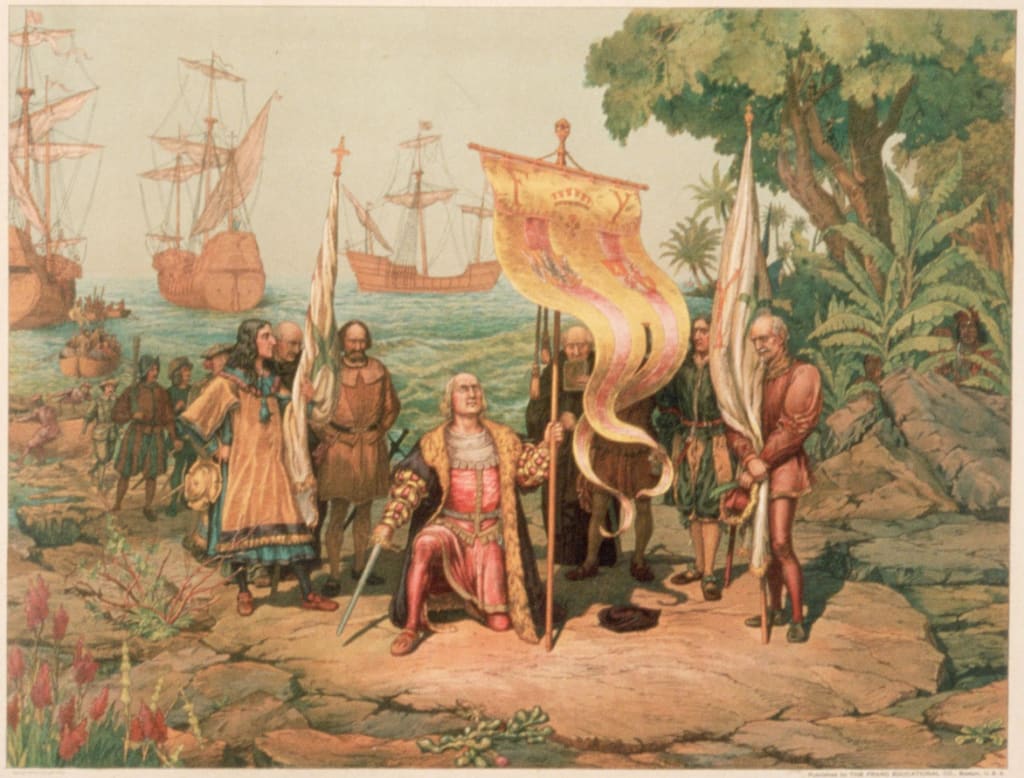How Colonies Affected Civilizations In The Past
and why it was so important to the world

The British colony was established in Hong-Kong, in 1841, right after the end of the first opium-war. That was the resistance of China to accept the opium trade of the English, East-India Company, as it was attempting to bring drugs from Bengal, the then well-established and advanced part of India that the company was operating from. Exporting commodities from Hong-Kong, like tea and silk was of great importance to Europe, yet there were few things that were allowed to be imported to Asia to counter-balance the sheet. The only commodity accepted by China was Silver, but it was rare to find and unprofitable for the whole trading endeavor. So they decided to induce opium, distributing it to the whole Country through smugglers, to cover for this deficit, creating a drug pandemic that would take the whole country by the swarm.
A Chinese official described the effects of the drug as follows:
"At the beginning, opium smoking was confined to the fops of wealthy families who took up the habit as a form of conspicuous consumption, even they knew that they should not indulge in it to the greatest extreme. Later, people of all social strata—from government officials and members of the gentry to craftsmen, merchants, entertainers, and servants, and even women, Buddhist monks and nuns, and Taoist priests—took up the habit and openly bought and equipped themselves with smoking instruments. Even in the center of our dynasty—the nation's capital and its surrounding areas—some of the inhabitants have also been contaminated by this dreadful poison."
That was a war trying to establish free trade in the area and set the ground to eradicate the trade-deficit, Britain had till that point. After the win of the war by the British and the establishment of the free market, Hong-Kong thrived as a central point of trades between Asia and Europe. Although the rest of China kept a closed economy and strict regulations, Hong Kong established an ideology of the free market and low taxation. Even today, after having ingrained all these ideas through the centuries it still keeps one of the lowest tax-levels with huge fiscal revenues under its arms equivalent to more than 12 months of expenditure.
All empires had a great influence in the world affecting all areas of life, from cultural and philosophical, to technology and education.
Roman empire arrived in Britain in 43 AD and stayed there all the way till 410 AD. Before the Romans, Britain had no real roads in its cities, they were all muddy tracks that would make all sorts of transportation dreadful and difficult. The first set of roads was actually built by the Romans that would employ their own technological knowledge and experience on how to make them properly. They would always make roads wide enough for two wheeled-vehicles to be able to pass each other, they would structure them in layers of larger rocks at the bottom followed by smaller ones on the top, cover it with gravel and sand, all layered in an orderly manner. All roads were purposefully inclined from the center, sliding downwards to the sides to allow the water to flow freely away from the road, and had located drainage canals on both sides. And above all Romans, were audacious in making the roads as straight as possible, even when the region had natural geographical difficulties to make so. They would use bridges and tunnels accordingly to keep to that rule as close as possible and they would create great monuments along the way. Great examples of these roads can be found even today in various places across Europe and in Britain alone, they built around 10.000 miles or road alone.
In the same way, through Romans Britain made its first steps towards writing and language. Up to that moment, there were very few people that knew how to write or read and all information would pass along orally. On the contrary, Romans would be very diligent in writing down their laws, history, and literature and that influenced Britain to act similarly as well.
It is mostly these two influences that were missed from Ireland when the Roman empire decided to not invade them. Roads were never built in Ireland till 800 AD when Norsemen arrived and even then they were only partially constructed and used as animal trails. Through an assuming Roman invasion, they would be in a position to built towns and put the fundamentals down for writing and language. Unfortunately, this only happened much later in their history line through the influence of different powers.
"By the time the Romans had reached Britain, their empire covered most of western Europe and their resources were becoming stretched. For most of the time they spent in Britain, they were more concerned with holding on to what they had rather than expanding further." --Ireland-Calling
When Alexander the Great was born, Greek civilization was at its greatest height. Socrates had already made his appearance a few years back and through him, Plato came along under his teaching which led him to found the platonist school of thought and the academy. Philosophy and political thought were at the forefront of the Greek culture at the time and this tradition continued with Aristotle that came right after, molded by Plato's school and propagating the incredible philosophical work they were doing. Under this great culture that had developed when Alexander was born, he had the opportunity to be educated by Aristotle per se. His conquest's that came along were different because they transferred all this culture to the whole world under the veil of Hellenism. He transferred education and the advanced Hellenist way of thinking in an era that everything was very unstable and regions were disjointed and disordered. All the little kingdoms and small tribes that were dispersed fighting each other were united under a common language and currency while keeping their own customs and religions as well.
"The reign of Alexander the Great signaled the beginning of a new era in history known as the Hellenistic Age. Greek culture had a powerful influence on the areas Alexander conquered." --Abernethy
In a world where technological advancement was much less advanced and they were barely making its baby steps, division and conflict was the norm. Deregulation and wavering were elements of daily life and all advancements were much harder to transfer from one area to the next. Although an empire was invading a foreign land and would subjugate a different region, they were fulfilling a much bigger need of what the world had at that moment in time.






Comments
There are no comments for this story
Be the first to respond and start the conversation.